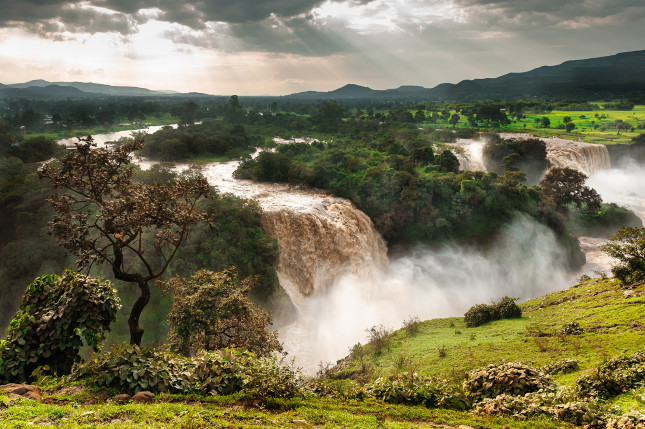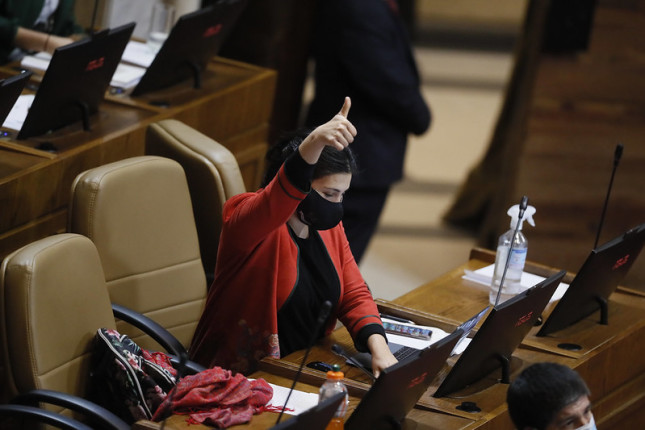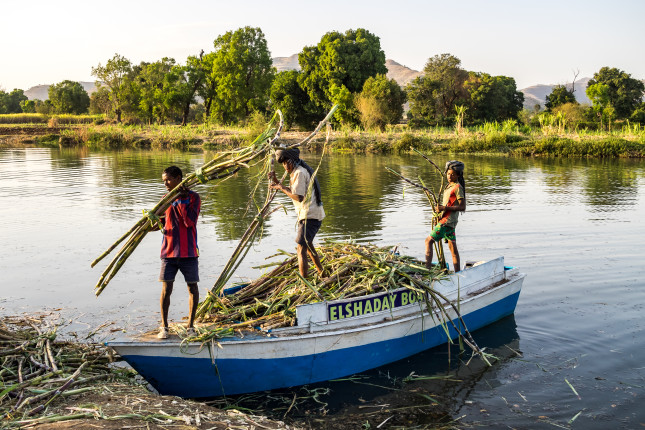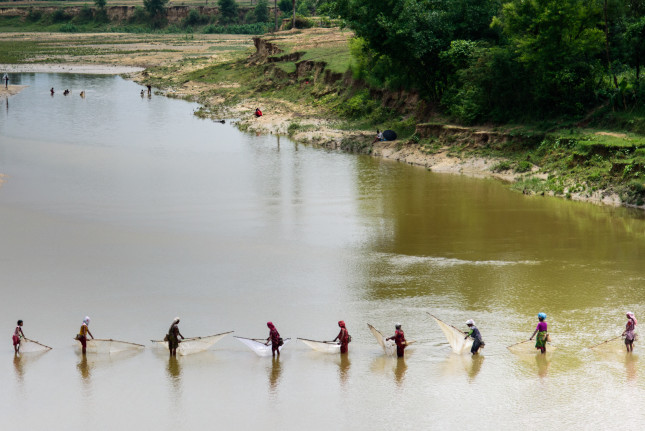-
New Constitution Could Help Chile Avert the Lithium Curse
›December 3, 2020 // By Matthew Gallagher
Chile is on the cusp of a new era. Just as its lithium—a common element of energy storage technology, which is itself a critical component of the clean energy transition—is experiencing a rise in global market demand, Chilean citizens have called for a new constitution.
-
A Tale of Two Transitions: Education, Urbanization, and the U.S. Presidential Election
›
Rather than delve into issue opinion polling, or assess presidential campaign strategies, political demographers assume that political change is the predictable product of a set of mutually reinforcing social, economic, and demographic transitions, which can be tracked using data. But is this true in a country like the United States that has been in the advanced stages of these development transitions for decades? If these transitions are as important as demographers believe, could their variation among the 50 states explain the outcome of the recent U.S. presidential election? If so, what could they tell us about America’s electoral future?
-
Climate Superpowers Could Alter Foreign Policy Landscape
›
“Climate change has the potential to be a very important confidence-building measure between the United States and China,” said Sharon Burke, Senior Advisor of the International Security Program and Resource Security Program at New America. “Because no matter what else is happening in our relationship, we can succeed together on climate change.” She spoke at the launch for a project co-led by the Wilson Center’s Environmental Change & Security Program and adelphi, “21st Century Diplomacy: Foreign Policy is Climate Policy.” Hosted as part of the Berlin Climate and Security Conference, the discussion focused on the “climate superpowers” section of the project.
-
With War Over the GERD Unlikely, Institutionalizing Nile River Diplomacy Would Be a Wise Next Step
›
The Grand Ethiopian Renaissance Dam (GERD) poses numerous challenges for the Nile river basin, but it also presents an opportunity for regional collaboration and shared prosperity, said Aaron Salzberg, Director of the Water Institute at the University of North Carolina and Wilson Center Global Fellow, at a recent event hosted by the University of North Carolina’s Center for Middle East and Islamic Studies.
-
21st Century Diplomacy: Foreign Policy is Climate Policy (Report & Project Launch)
›
Climate change will upend the 21st century world order. It will redefine how we live and work, and change the systems of production, trade, economics, and finance. Even now, in the midst of a global pandemic, it is clear that climate change will be the defining issue of this century. In fact, COVID-19 has only underscored the inadequacy of our responses to global crises and heightened the urgency of this call to action. 21st century diplomacy will have to raise climate ambition, shape the transformative systems change needed, and promote and facilitate new modes of multilateral collaboration.
-
Why Feminism Is Good for Your Health
›
As a world still dominated by patriarchy struggles with a deadly pandemic, the countries that have successfully navigated the global COVID-19 pandemic are distinguished by the gender of their leadership. Across the world, countries headed by women and representing diverse cultures—from Germany, Norway, and Finland, to Taiwan, New Zealand, and Namibia—have managed the crisis more effectively, with fewer fatalities and less livelihood loss than others. But what distinguishes these health winners is not just the female shape of their leaders but the feminist shape of their societies. Even more gender-balanced societies headed by men—like Canada—do better in health crises than their less equitable peers like the United States. On the other hand, the most patriarchal countries headed by regressive strongmen do worse at every level of development. Today, we see this in Brazil, which until recently had managed health crises well under less masculinist leadership.
-
Debt on the Nile? Sharing Rivers on the African Continent
›
Trouble is brewing on the Nile. For years, use of the river was mainly about the needs of Egypt, by far the largest and most powerful riparian country in the basin. But since the Arab Spring of 2011, the situation has changed considerably. Egypt’s troubles over the last decade have weakened its ability to project power southward, while upper riparian states—Ethiopia in particular—have enjoyed a period of economic growth and relative stability, which has led them to look at the great river as an important national resource. Tensions have come to a head since Ethiopia announced the construction of the Grand Ethiopian Renaissance Dam (GERD), construction of which is now almost complete. Once full, the resulting reservoir will be larger than the whole of Greater London. Much of the water it holds would have previously reached Sudan and Egypt largely unhindered.
-
How to Think and Work Politically to Reach Biodiversity Conservation Goals
›
“You might know what to do,” said Rachel Kleinfeld, a Senior Fellow for Democracy, Conflict, and Governance Program at the Carnegie Endowment for International Peace. “But if you don’t think about how to do it, your reform isn’t going to move forward.” She spoke at a recent Wilson Center virtual event on how to think and work politically while supporting biodiversity conservation goals. It may sound counterintuitive, she said, but undertaking what’s considered the best intervention may not be the best approach.
Showing posts from category democracy and governance.











